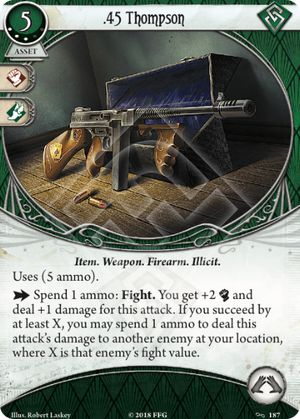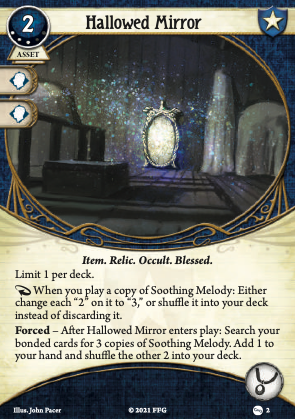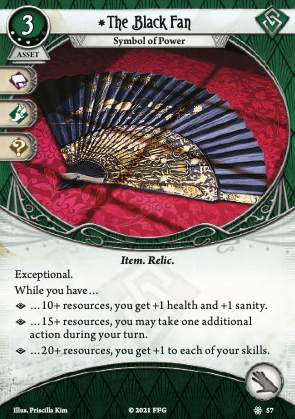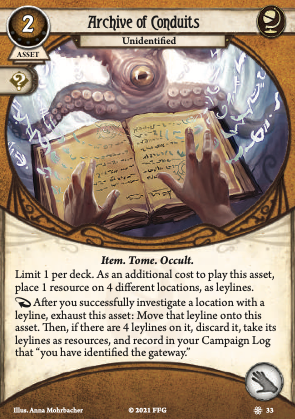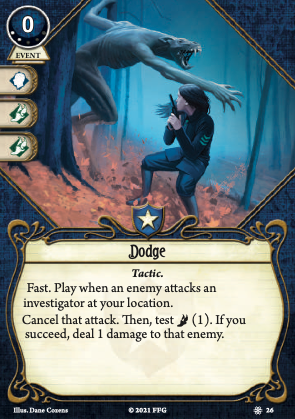
It's thematic, but kind of a bummer for the investigator, who would like it most, that this card tests : Nathaniel Cho. He loves cards, that could trigger his ability out of the investigator phase, and there are not that many. So far, I've found:
- "Get over here!" (2)
- Ambush (in particular, if you pair it with On the Hunt, or better yet the upgraded version)
- (of course) Counterpunch and the upgrade
- Dynamite Blast (3) (which is nice I guess, but kind of situational: you play it mainly to hurt many, not for the one additional damage)
- Heroic Rescue and the upgrade
- Taunt (3)
So unless I have missed one, this would be the seventh option for him. (Not talking about really weird exceptions, like a Teamwork to take Chuck Fergus to do either version of One-Two Punch out of turn. ) But testing ? The only possibility I see, how this might work for Cho, would be spending money on Combat Training. This card also got an Upgrade, which is coincidently right the next card in this pack. It makes, among other things, passing the check 2 resource cheaper. But I'm still not sure, if this would be worth it.
